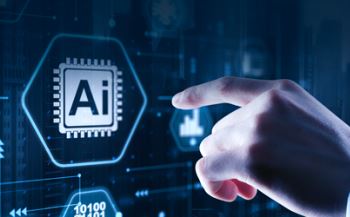Artificial Intelligence (AI) is one of the most profound technological innovations of our era, rapidly transforming the way we live, work, and learn. From automating industrial processes to using algorithms to personalize our digital experiences, AI has become a disruptive force that provokes both excitement and concern. Its social impact is deep and complex, especially when it comes to jobs, education, and everyday life. One of the most evident effects of AI is felt in the job market.

Automation has become an indispensable tool for companies aiming to increase efficiency and reduce costs. Industrial robots, data processing algorithms, and machine learning systems have already replaced many repetitive and manual tasks. In this context, a profoundly human dilemma arises: how can we reconcile the benefits brought by AI with the loss of traditional jobs? While some industries and professions disappear, new ones emerge that require advanced technology skills. This transition generates insecurity for many workers, especially those without access to the resources needed for retraining.
Education is another area profoundly affected by AI, which promises to personalize and democratize access to learning. Algorithms can analyze each student’s learning style, tailoring content to maximize efficiency. However, this approach also brings challenges. Overreliance on technology can lead to a loss of social skills and exacerbate disparities between students who have access to AI and those who do not. Teachers also face the necessity of reinventing their roles, shifting from primary sources of information to guides in the learning process.
In daily life, AI has become an invisible yet omnipresent companion. From personalized recommendations offered by streaming platforms to virtual assistants managing mundane tasks, AI simplifies our lives and saves us time. However, this convenience comes at a cost. The massive data collection necessary for AI functionality raises serious privacy concerns. Consumers find themselves in a paradox where they accept sacrificing some of their privacy to enjoy the advantages of technology.
AI is also a catalyst for cultural changes. It redefines what it means to be productive, creative, and connected. This can encourage a more flexible and adaptable society, but also a more fragmented one, where divisions between those who can use AI and those who cannot become deeper. Moreover, in a world where technology can simulate human creativity and empathy, it becomes increasingly difficult to distinguish the authentic from the artificial.
Thus, the social impact of AI is profoundly ambivalent. On the one hand, AI brings significant progress, opening new horizons in all aspects of life. On the other hand, it raises fundamental questions about the nature of work, education, and human relationships. It is essential to ensure that we develop and use AI in a way that promotes equity, inclusion, and social responsibility. Only then can we harness the potential of this technology to create a better future for all.
(Article
generated and adapted by CorpQuants with ChatGPT)



